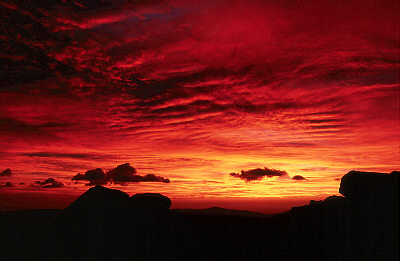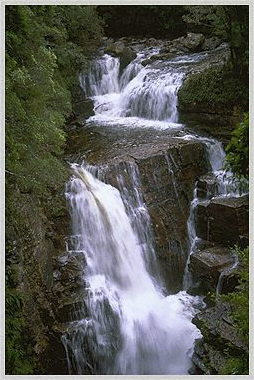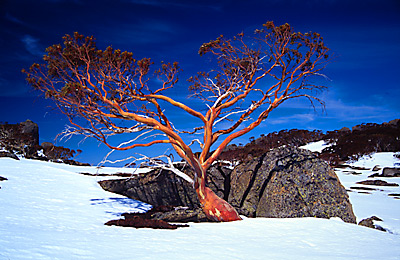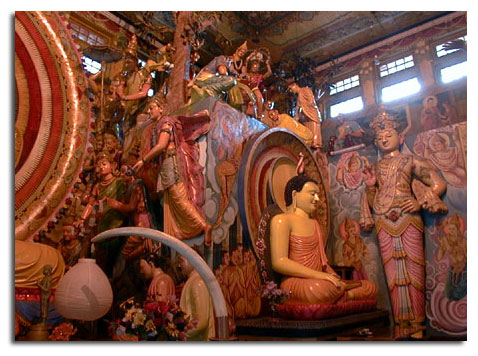A View on Buddhism
POETRY
| PAGE CONTENTS | |
|---|---|
| Introduction Love - by Bhante Wimala If - by Rudyart Kipling Peace is Every Step - by Thich Nhat-Hanh Autobography in Five Chapters - by Portia Nelson Quietness - by Rumi Today - Indian Poem Love - by Gurulugomi Desensitization - by Tykal Let's not blow it - by Homer Groening Within You, Without You - Lyrics by George Harisson Spiritual Life is a Life of Search - by Swami Ramakrishnananda Mind - by Niguma |
Better - by the Buddha from the Dhammapada Take Heart - by Jennifer Edwards Preconceptions - by Milarepa Speaking Truth - by Jesa Macbeth The Strength of a Man - by Jacqueline Marie Griffiths Poem - by Lama Gendun Rinpoche Song of the Diamond Heart by G. Bluestone Life - by Daisaku Ikeda A New House - by Jennifer Edwards Stop killing! - by Chan Master Cloud of Vows Do not stand at my grave and weep - Mary Elizabeth Frye |
INTRODUCTION
Although I am not a particular poetry-lover, below texts do carry special meaning to me.Be they Buddhist or not, they convey some essential wisdom for me.
Most of below stunning photos are from Geoff
Wise and are visual poetry to me, enjoy!
LOVE
By Bhante Wimala
When your mind becomes motionlessand the brilliant eyes of the peaceful mind
take a straight look down into the depth of your heart
you will see the life-force pulsating and thriving
in the warmth of pure love.
As you experience this pure love
what we all call "heart"
beams of light will begin to radiate from the center of it
for heaven is there in eternity.
If you can release this radiance of love
and allow it to flow through you,
your heart will become light.
The spirit will get liberated into the air
and then, from a place of inner stillness
you will know what it would be like
to be an eagle and soar in the evening skies.
And most of all,
you would understand
what it would be like
to be perfectly sane.
TODAY
Vijaya Samarawickama, A Buddhist Reflects on Happy Living, 2004This day is a special day, it is yours.
Yesterday slipped away, it cannot be filled anymore with meaning.
About tomorrow nothing is known.
But this day, today, is yours, make use of it.
Today you can make someone happy.
Today you can help another.
This day is a special day, it is yours.LOVE
Gurulugomi (Buddhist Sage~12th Century AD)If you develop love truly great,
rid of the desire to hold and possess.
That strong, clean love untarnished by lust,
that love which does not expect to be repayed,
that love which is firm but not grasping,
enduring but not tied down,
gentle and settled,
diamond-hard but unhurting,
helpful but not interfering,
cool and refreshing,
giving more than taking,
dignified but not proud,
soft but not weak,
that love which leads to Enlightenment,
then you will be washed of all ill-will.
LET'S NOT BLOW IT
Public Service Annoucement By Homer Groening (1967)There are millions of years in the past
There are millions of years ahead of us
And here we are
Right in the middleThen there's space
There are miles and miles of space in all directions
And here we are
Right in the middleThis is a big deal
Being in the middle of time and space
It sort of makes your eyes water
We'd never find this moment again
In a million years
This is our world
Let's not blow itWITHIN YOU WITHOUT YOU
We were talking - about the space between us all
Lyrics; George Harrison, 1967
And the people - who hide themselves behind a wall of illusion
Never glimpse the truth - then it's far too late - when they pass away.
We were talking - about the love we all could share - when we find it
To try our best to hold it there - with our love
With our love - we could save the world - if they only knew.
Try to realise it's all within yourself no-one else can make you change
And to see you're really only very small,
And life flows on within you and without you.
We were talking - about the love that's gone so cold and the people,
Who gain the world and lose their soul - they don't know - they can't see - are you one of them?
When you've seen beyond yourself - then you may find, peace of mind is waiting there -
And the time will come when you see we're all one, and life flows on within you and without you.BETTER
From the DhammapadaBetter than a thousand
Hollow words
Is one word that brings peace.
Better than a thousand
Hollow verses
Is one verse that brings peace.
Better than a hundred
Hollow lines
Is one line of the law, Bringing peace.
It is better to conquer yourself
Than to win a thousand battles;
Then the victory is yours.
You don't have to do anything with your mind,
just let it naturally rest in it's essential nature.
Your own mind, unagitated, is reality.
Meditate on this without distraction.Know the Truth beyond all opposites.
Thoughts are like bubbles that form and dissolve in clear water.
Thoughts are not distinct from the absolute Reality,
so relax, there is no need to be critical.Whatever arises, whatever occurs,
simply don't cling to it, but immediately let it go.
What you see, hear, and touch are your own mind.
There is nothing but mind.Mind transcends birth and death.
The essence of mind is pure Consciousness that never leaves reality,
even though it experiences the things of the senses.
In the equanimity of the Absolute, there is nothing to renounce or attain.
SPIRITUAL LIFE IS A LIFE OF SEARCH
By Swami Ramakrishnananda
Spiritual life is a life of search...but a true search. Not to investigate and to seek what you hope to discover,
Not the object of your aspiration,
But what you are.
Meditation is just a search for the meditator.
Enlightenment is to discover...
To discover that there is no discoverer, and there is nothing to discover...
Enlightenment is to be.
To be the most wonderful discovery of what can not be found.
It is to arrive to no where...
To meet no one.
You fail, because of your habit to search only for that which satisfies your needs.
Get rid of all this need.

And you will see...
Get rid of all that you have.
And you will see...
Throw away all that can be thrown.
And you will see...
Give up these words, and what they make you feel
And you will see...
Give up your attempt to give up.
And you will see...
Give up your attempt to see.
Because then you will really see...
The farther the object you search for, the better eyesight you need.
That which is closest to you, you have to be.
The Strength Of A Man
by Jacqueline Marie Griffiths
 The strength of a man isn't seen in the width of his shoulders.
The strength of a man isn't seen in the width of his shoulders.It's in the width of his arms that encircle you.
The strength of a man isn't in the deep tone of his voice.
It's in the gentle words he whispers.
The strength of a man isn't how many buddies he has.
It's how good of buddies he is with his children.
The strength of a man isn't in how respected he is at work.
It's in how respected he is at home.
The strength of a man isn't in how hard he hits.
It's in how tender he touches.
The strength in a man isn't in the hair on his chest.
It's in his Heart...that lies within his chest.
The strength of a man isn't how many women he's loved.
It's in can he be true to one woman.
The strength of a man isn't in the weight he can lift.
It's in the burdens he can carry.
© July 15, 1999 Jacqueline Marie Griffiths (written for Hunt D. Rochon)
Poem
by Lama Gendun Rimpoche
Happiness is not to be found with many efforts or will, but
is here, nearby, in your relaxing and surrendering.
Don't worry, there is nothing to be done.
Everything that comes up to your mind has no importance because it has no reality.
Don't conceive any attachment for it.
Don't judge yourself.
Let it be.
Let it come up and down without changing a thing.
It all vanishes and begins again, endlessly.
Nothing but the quest for happiness prevents us from seeing it.
It is like a rainbow that one is always chasing without ever reaching it.
It is because it has no existence.
It has always been here and goes with you all the time.
Don't believe in the reality of experiences, good or bad.
They are like rainbows.
Because we want to grasp what is not to be grasped,
We exhaust our strength in vain.
As soon as we relinquish our hold, space is here, open, welcoming & comfortable.
So, do enjoy it.
Everything is yours already.
Stop searching.
Don't go into the jungle to look for the elephant that is quietly waiting for you at home.
There is nothing to do.
There is nothing to force.
There is nothing to desire.
And all comes by itself.
Don't worry, there is nothing to be done.
Everything that comes up to your mind has no importance because it has no reality.
Don't conceive any attachment for it.
Don't judge yourself.
Let it be.
Let it come up and down without changing a thing.
It all vanishes and begins again, endlessly.
Nothing but the quest for happiness prevents us from seeing it.
It is like a rainbow that one is always chasing without ever reaching it.
It is because it has no existence.
It has always been here and goes with you all the time.
Don't believe in the reality of experiences, good or bad.
They are like rainbows.
Because we want to grasp what is not to be grasped,
We exhaust our strength in vain.
As soon as we relinquish our hold, space is here, open, welcoming & comfortable.
So, do enjoy it.
Everything is yours already.
Stop searching.
Don't go into the jungle to look for the elephant that is quietly waiting for you at home.
There is nothing to do.
There is nothing to force.
There is nothing to desire.
And all comes by itself.
The Crystal Winter
Depressing Yet So Blissful
As Frozen Tears Crash
CP
Do not stand at my grave and weep
Mary Elizabeth Frye
- Do not stand at my grave and weep,
- I am not there, I do not sleep.
- I am in a thousand winds that blow,
- I am the softly falling snow.
- I am the gentle showers of rain,
- I am the fields of ripening grain.
- I am in the morning hush,
- I am in the graceful rush
- Of beautiful birds in circling flight,
- I am the starshine of the night.
- I am in the flowers that bloom,
- I am in a quiet room.
- I am in the birds that sing,
- I am in each lovely thing.
- Do not stand at my grave and cry,
- I am not there. I do not die.
တင္ဒုင္၀န္။ ။ကဗ်၀ြံေကတ္နင္ႏူကု္ http://viewonbuddhism.org/resources/poetry.html မဒ္ွရ







